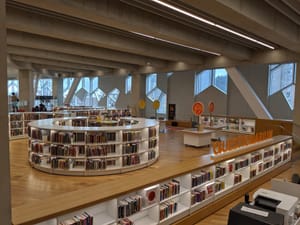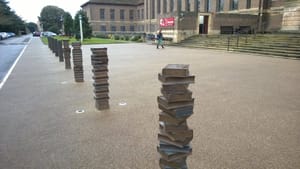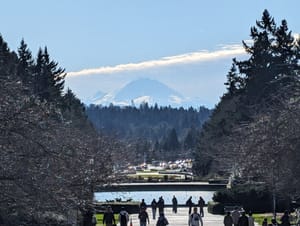Curating our Digital Scientific Heritage: a Global Collaborative Challenge is the title of the third international Digital Curation Conference. I was interested to see scientific data described in this way as heritage given our sometimes restrictive use of heritage.
Although the topic of data curation is now being more widely discussed as a potential service area for libraries, I do not sense that we are yet moving to any consensus about what this might mean in practice (acknowledging that it is another of these terms which is used in very general ways as well as in a more reserved way where research data is the referent). And, of course, it is a wide-ranging topic which ranges over many disciplines and types of data. The scale of the task also varies considerably. Think for example about the great volumes of data being generated in large scientific and other applications, alongside smaller data collections generated by an individual’s research. There are many actors involved and new ones may emerge as roles develop.
Some of these issues were discussed in a presentation by Chris Rusbridge, Director of the DCC, at OCLC a while ago (“To-morrow, and to-morrow, and to-morrow:” the players on the curation stage [ppt: 6.2MB/63 slides]). And I have just come across a useful presentation by Liz Lyon, also a participant in the DCC, which nicely overviews issues.
Dealing with Data: Roles, Rights, Responsibilities & Relationships
JISC Digital Repositories Conference, Manchester June 2007
Liz Lyon
Presentation: [Powerpoint] [HTML] (Permalink) [UKOLN – staff – Dr Liz Lyon – Presentations]
Liz’s presentation is based on a forthcoming UKOLN report which will be worth looking out for.
I have been thinking about this as I spent a congenial and instructive few days this week at a retreat of California State University library directors. David Lewis spoke to the meeting in terms similar to those outlined in the paper I mentioned in these pages a little while ago. Here is the abstract:
The paper presents a model for academic libraries for the next 20 years. The parts of the model are: 1.) Complete the migration from print to electronic collections; 2.) Retire legacy print collections; 3.) Redevelop the library space; 4.) Reposition library and information tools, resources, and expertise, and 5.) Migrate the focus of collections from purchasing materials to curating content. The interactions of the parts of the model and organizational issues for implementation are explored. [IDeA: IUPUI Digital Archive: A Model for Academic Libraries 2005 to 2025]
Under part 5, David discusses an allocation of resource away from purchased materials and towards management of institutional intellectual assets, whether these are digitized special collections or, increasingly, the digital outputs of research activity. He discusses some of the organizational implications of such a switch.
Related entries:



